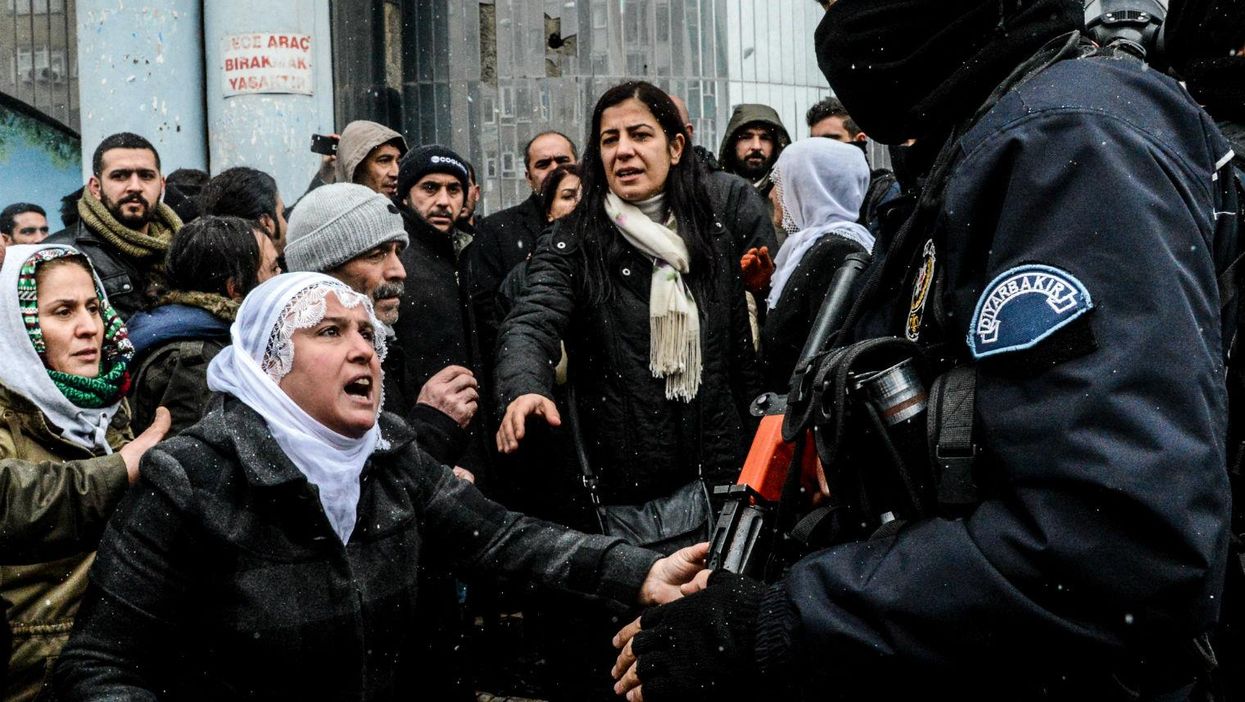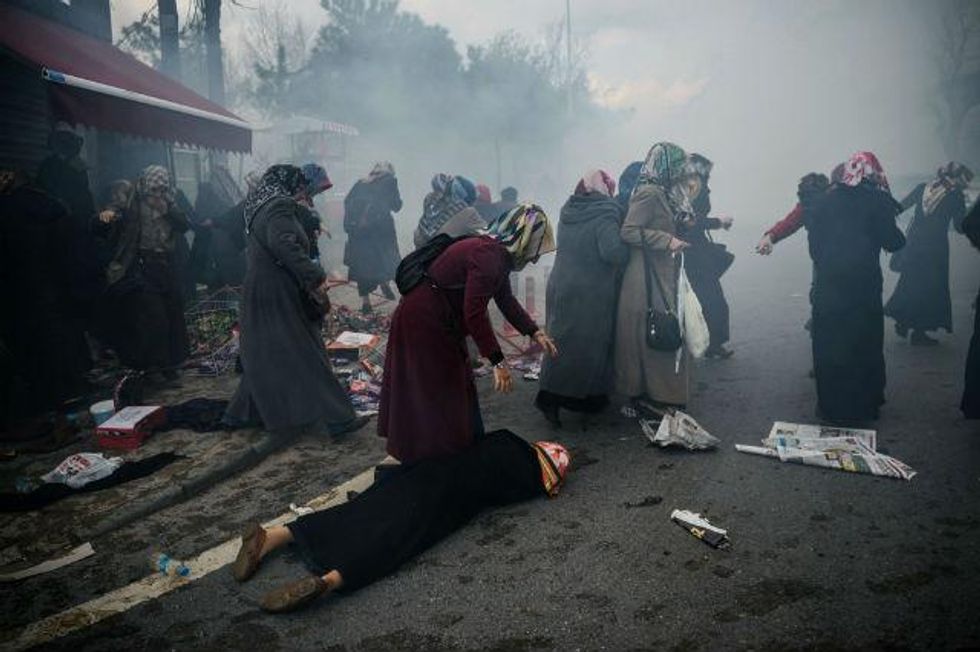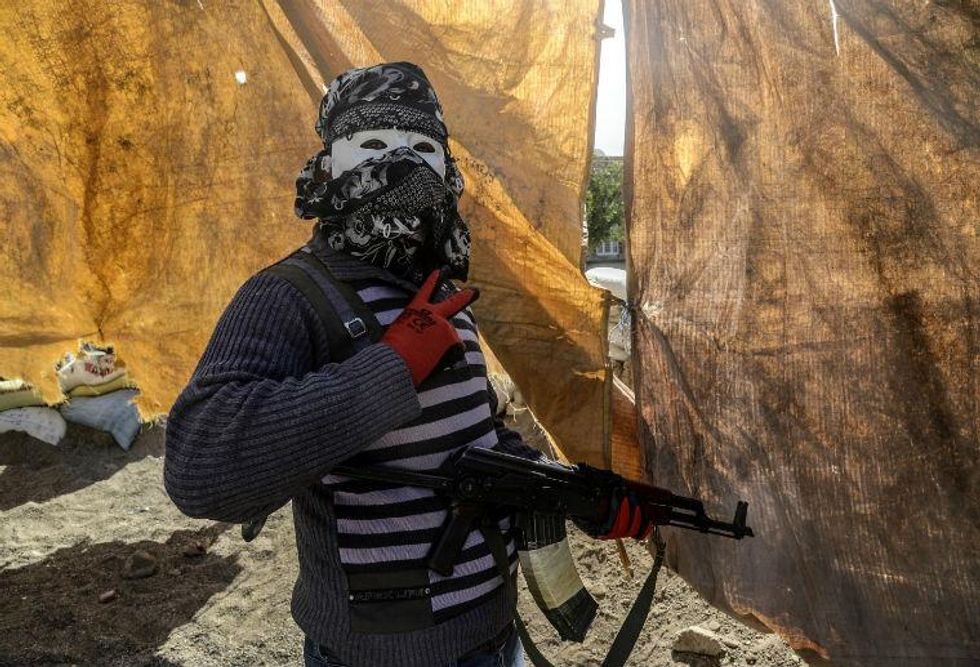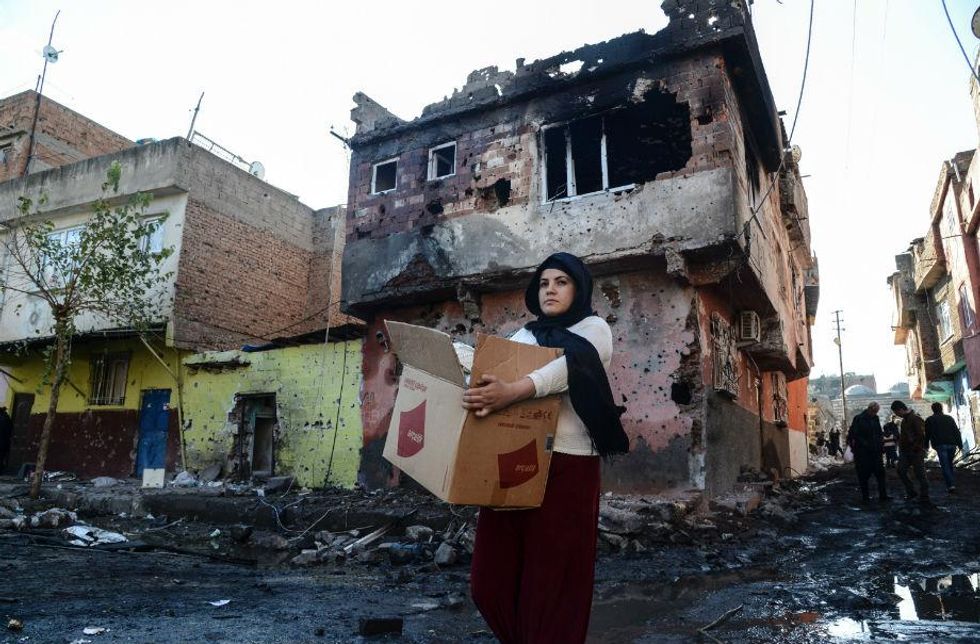News
Bethan McKernan
Mar 07, 2016

Police officers stand guard on December 31, 2015 in Diyarbakir, Turkey
European Union leaders are converging in Brussels on Monday for an emergency summit on the refugee crisis.
The key issue on the table is how states are supposed to manage their borders: and Greece and Turkey, as the main gateways for desperate people fleeing the Middle East and North Africa, are the most important countries under discussion.
EU leaders are preoccupied with keeping Turkish president Recep Tayyip Erdoğan on side, promising billions in aid to keep refugees inside Turkey's borders.
And yet people both within Turkey and in the international community are worried that the EU's need to stem the number of refugees entering EU territory means that leaders are turning a blind eye to human rights violations and increasingly heavy crackdowns on political opposition in the non-EU country.
Several recent moves show that Turkey's government is becoming increasingly illiberal: over the weekend, a court ruled that liberal Istanbul-based newspaper Today's Zaman should immediately move into the control of the state.
Police fired tear gas and rubber bullets at protesters who demanded the paper should remain independent.
Arbitrary arrests and detention of journalists and political activists are becoming more commonplace, as is mass censorship of platforms like Twitter, and media blackouts, such as during January's Isis-inspired attack in a tourist district of Istanbul.
In the culturally Kurdish south-east of the country, Erdoğan's government is engaged in a crackdown on the separatist PKK (Kurdish Worker's Party), which a number of western countries view as a terrorist organisation.
Kurdish political parties declared a renewed push for self-determination in August last year after the breakdown of a two-year truce.
Since then, government troops have imposed curfews on several cities in the region, and at least 60 civilians are thought to have died in fighting between PKK and government troops and protests.
During a security forces operation in the city of Cizre in February, the army said it killed more than 600 Kurdish rebels - but local media and human rights groups reported that at least 263 civilians died hiding in bunkers from shrapnel.
Turkish media, as in the case of Today's Zaman, are silent on the topic.
As a result, little reporting of Erdoğan's government has filtered into international news - and our leaders, too, remain silent.
More: A liberal Turkish newspaper was just taken over by the government
More: What happened when a journalist asked Turkish president Recep Tayyip Erdogan if he was a dictator
Top 100
The Conversation (0)
















